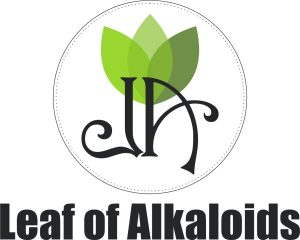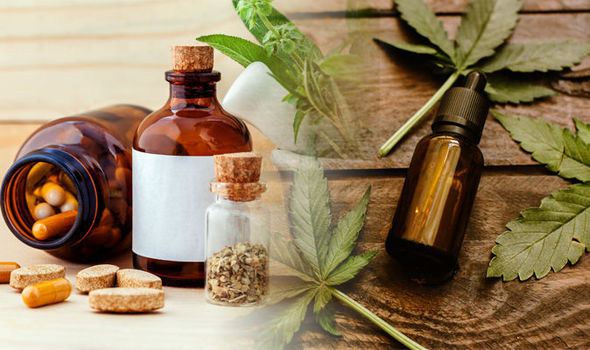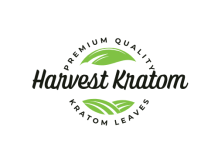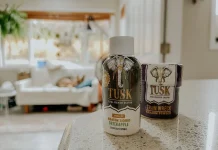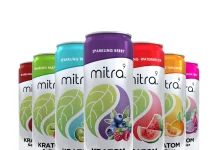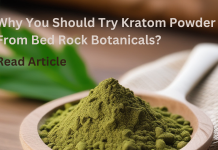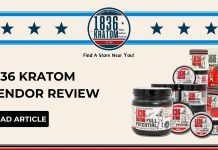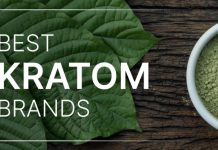CBD capsules are an enclosed container made of soft or hard gelatin to contain CBD oils extracted from the cannabis plants (industrial hemp plants). The oil is encapsulated in soft gel CBD capsules that are made from digestible gelatin.
The gelatin-based capsules are created by mixing glycerin with water and forming the substance into small, easy to swallow caplets. The caplets are then filled with CBD oil. CBD capsules are a fast and efficient way to swallow the supplement CBD without tasting the oil. Once in your system, the capsule digests quickly so your body can absorb the oil.
Many people turn to CBD capsules as an aid to relieve daily stress so that they can relax. Taking the supplement daily differs very little from taking any multivitamin, and the dosage is easy to regulate. You take one or two CBD capsules per day with water to reap the health benefits.
As an experienced CBD user, I always prefer to take CBD soft gel capsules, but the choice of every user is different. People are curious about which form of CBD is the best fit for their situation. CBD capsules, Edible CBD gummies, CBD vape juices, sublingual tinctures, oral sprays, dabs and many other types of CBD products flooded into the market.
What people confuse about is that hemp CBD capsules are just the one that works, or they can have different forms of CBD products? We’re telling you everything about which format is better. Why should you prefer pure CBD capsules as compared with other formats? What are the benefits of CBD capsules, how to choose hemp CBD oil capsules, what is the accurate dosage of CBD capsules, and are CBD capsules legal in the US, Canada, UK?
What is CBD?
 Cannabidiol, commonly called CBD, is a non-psychoactive cannabinoid of the cannabis plant. It is a highly therapeutic compound that is in use to treat an assortment of ailments such as anxiety disorders, cancer, arthritis, epilepsy, and pain.
Cannabidiol, commonly called CBD, is a non-psychoactive cannabinoid of the cannabis plant. It is a highly therapeutic compound that is in use to treat an assortment of ailments such as anxiety disorders, cancer, arthritis, epilepsy, and pain.
How Does CBD Work?
The body contains receptors known as CB1 and CB2 receptors. The cannabinoids found in the cannabis plant attach to CB1 and CB2. The receptors are often referred to as the body’s endocannabinoid system or ECS. The cell receptors and associated molecules are located throughout the human body. They can be found in the brain, immune system cells, organs, glands, and connective tissues.
Within the various locations, each one performs a very different task. However, ultimately, their goal is always homeostasis, which is an optimum balance within the body. The ability of CB1 and CB2 receptors to create balance within the human body helps the ECS system remain healthy.
Understanding CB1 and CB2 Receptors
Now you are probably wondering how cannabinoids work in the ECS system. Well, think of the relationship as a lock and key. The two cell receptors in the ECS are the CB1 and the CB2. The CB1 and the CB2 are locks that can be unlocked by cannabinoids. CB1 receptors occur in great multitudes within the body’s central nervous system.
CB2 receptors are present within the body’s immune cells, gastrointestinal system, and the nervous system. The cannabinoids found in the cannabis plant stimulate the body’s cannabinoid receptors; both CB1 and CB2. The body’s vanilloid, serotonin, and adenosine receptors are also sensitive to the cannabinoids.
Benefits of CBD Activating the CB1 and CB2 Receptors
When the CB1, CB2, and other receptors of the ECS are activated in the body, they spring to action to fight things like inflammation, pain perception and mediate the body’s temperature. The receptors also act to relieve anxiety and act as antidepressants.
Cannabinoid receptors within the human body handle a variety of functions such as:
- Mood
- Sleep
- Hunger
- Digestion
- Motor control
- Appetite
Cannabinoids in the Cannabis Plant
The cannabis plant contains a wide array of cannabinoids, but the two most common are cannabidiol (CBD) and tetrahydrocannabinol (THC). THC reacts strongly with the body’s ECS system and the receptors to produce psychoactive responses. However, CBD has no psychoactive effects even though it also reacts with the ECS system and the receptors to a lesser degree.
The Relationship Between CBD and 5-HT1A
Researchers at the University of San Paulo in Brazil and the King’s College in London have studied the effects of CBD on anxiety. When given in high concentrations, CBD activates the body’s 5-HT1A (hydroxytryptamine) serotonin receptor. The 5-HT1A receptor is activated by the body’s neurotransmitter serotonin which is found in the central and peripheral nervous systems.
When triggered, such as by CBD, it causes a cascade of chemical messages to fire in the body. The instructions help to ease, anxiety, stimulates appetite, promotes sleep, relieves pain perception, eases nausea, and reduces vomiting. It may also help with some forms of addiction. Further research is needed, but at this point, it is undeniable that CBD has a significant impact on the human body and helps relieve some medical conditions.
CBDA and CBD Reacting to 5-HT1A
CBD, in its raw form, before being heated, is known as CBDA (Cannabidiolic acid). In the form of CBDA, the substance has a powerful affinity for the 5-HT1A receptor and may even prove more potent than CBD for certain things such as an anti-nausea medication. However, further research is needed to explore the many health benefits of both CBD and CBDA brought on by their relationship with the body’s 5-HT1A.
Vanilloid Receptors
CBD helps to mediate pain perception, inflammation, and the body’s temperature by interacting with the various ion channels in the human body. The body’s TRPV1 (transient receptor potential cation channel subfamily V.) is also called the vanilloid receptors.
Their function is to govern the body’s pain perception and inflammation strongly. TRPV1 also reacts well with CBD, which is why many researchers and physicians believe that CBD is highly beneficial for pain sufferers and those who suffer from chronic inflammatory conditions such as Rheumatoid Arthritis.
GPR55 and CBD
GPR55, known as orphan receptors, are blocked or deactivated by cannabidiol. The brain expresses GPR55, predominantly in the cerebellum. It modulates blood pressure and bone density. When overactive, GPR55 is believed to be one of the causes of osteoporosis. It also promotes cancer cell growth according to research undertaken by the Chinese Academy of Sciences in Shanghai, China.
Certain types of cancers even express the receptor. CBD is believed to block and deactivate GPR55 which could be very beneficial as a cancer treatment aid or to prevent osteoporosis in some individuals. Further research is needed, but so far, the studies have been very promising.
CBD’s Reaction with PPAPs
CBD can also activate PPARs (peroxisome proliferator-activated receptors) in the body. PPARs are located on the surface of a cell’s nucleus. When the PRARs are activated, they have a sound anti-proliferative effect which is believed to induce cancer tumour regression.
PPARs are also considered to successfully deactivate amyloid-beta plaque, which is a molecule that has been directly linked to Alzheimer’s disease. Lipid uptake, insulin sensitivity, energy homeostasis, and metabolic functions are also affected by PPAR receptors, so many researchers are studying the benefits of CBD in diabetes treatment.
CBD Rich Strains of Marijuana
Nowadays, many strains of marijuana have been developed that are CBD dominate. The cannabis Sativa, which is commonly used in hemp products, contain little or no THC but have high levels of CBD. Such forms of cannabis hemp are frequently used to make CBD hemp oil capsules. The user does not have to worry about any psychoactive effects from THC, but they will reap the benefits of the CBD.
CBD Capsules Vs. CBD Oil: Which One is Better?
You can choose to purchase the CBD as capsules, drops, tinctures, sprays, topicals, or vape oil form.
- Capsules: Cannabidiol is present in CBD capsules.
- Drops: Drops are usually straight CBD oil. The user places the drops directly under their tongue to ingest sublingually.
- Tinctures: Tinctures have varying degrees of CBD oil mixed with other substances.
- Sprays: Sprays contain various amounts of CBD mixed with other ingredients.
- Vape Oil: Vape oil must be utilized using a vape pen or a vaporizer. The oil is vaporized so the user can inhale the CBD vapor into their lungs for rapid absorption.
- Topicals: Topicals come as lotions or creams that you apply directly to the skin.
Dosage and Convenience
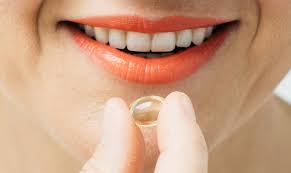 The main differences between the various types of CBD products are convenience and dosage. Capsules are convenient and easy to swallow.
The main differences between the various types of CBD products are convenience and dosage. Capsules are convenient and easy to swallow.
The dosage of each capsule is also highly accurate, unlike drops where you have to try to figure out how many drops to take to achieve the correct dose of CBD and vape oil which is extremely difficult to ingest accurately.
Vaping involves inhaling the vapor, which is far less convenient than merely taking a capsule supplement. Tinctures, sprays, and topicals vary in the percentage of CBD, and they also often contain other active ingredients.
Bioavailability of CBD Capsules
Undoubtedly, CBD capsules are readily accessible and easy to use. They are easy to carry and consume. However, the bioavailability of CBD in capsule form is only 6 to 15 percent. If you are taking a 100 mg CBD oil capsule, you will absorb 6 to 15mg of the oil.
It means that you will need to adjust the dosage to gain the same health benefits as vaping or taking oil sublingually. Unlike drops and oil, the dosage of CBD capsules can be figured with high accuracy, so there is no danger of ingesting too little or too significant an amount.
Benefits of CBD Capsules
CBD capsules are becoming one of the most popular ways to ingest CBD because they are fast, clean, and simple.
Here are a few of the other benefits of using CBD capsules:
- Easy Dosing: With CBD capsules, there are no measuring dosages. You know precisely how much CBD each capsule contains. You take the required number of tablets to attain the correct dosage.
- Portable: CBD capsules are easy to carry and considered shelf-stable. You never have to worry about the bottle breaking and leaking oil everywhere as you do with oils, sprays, and tinctures. It makes travelling with CBD capsules a breeze.
- Easy to Take: You merely incorporate CBD capsules into your daily regime just as you do with other multivitamins and minerals. You can place the tablets in your pill dispenser right alongside your other daily supplements and medications.
- Taste: The taste of oils and tinctures can be unpleasant for many users. Some people complain that the substance tastes grassy or plant-like, but with capsules, there is no taste. You swallow the pills with a glass of water. The tablets are odourless, flavorless and go down easy.
Quality Considerations
Another consideration is the quality of all CBD products, whether capsules, drops, or vape oil can vary depending on the brand and even the age of the product. You will want to purchase all products from a reputable manufacturer.
Ideally, whichever product or brand you choose to use should have dosage instructions and percentages of CBD per product clearly outlined on the label. It means that you won’t have to guess at dosage. If you are a vegetarian or a vegan, be sure to check the label to make sure that the capsules are vegan/vegetarian-friendly.
How to Choose the Best CBD Capsules?
Here are six tips on how to choose the best CBD capsules:
Source
The place where the hemp plant grows is a matter of purity. Unlike most plants, a cannabis plant is a bioaccumulator which means that it cleans the soil through a process “phytoremediation”. However, this means that if the hemp plant grows in such soil that contains pesticides, heavy metals, or radiation, then the plant will absorb the toxic substances and render the CBD oil less than pure.
Ideally, all hemp plants grown for CBD production should be grown and harvested in organic soil conditions. Currently, China, the Netherlands, France, Chile, and South Korea are the leading producers of hemp. However, the United States, Germany, and Canada are not far behind. Manufacturers of CBD will list the place of a plant grow on their labels.
Lab Results
Reputable manufacturers of CBD have their products tested by third-party laboratories for purity. The lab makes sure that the product is free of harmful chemicals, pesticides, heavy metals, solvents, and other chemicals. You should never purchase and use CBD products that have not undergone open third-party tasting at a reputable laboratory.
Processing Methods
The cannabidiol is extracted from the hemp plant using a variety of extraction methods such as butane and petroleum. Unfortunately, solvent extraction methods leave residue in the product which interferes with its purity. Ideally, the CBD that you purchase should have been obtained through an extraction method known as CO2 extraction. It renders the product pure and free of possible harmful chemical solvents.
CO2 removal involves pushing pressurized carbon dioxide through the plant material to pull CBD from the plant. It is an expensive extraction method, but it creates a pure, safe, and very potent final product.
A few manufacturers use petroleum solvents to extract the CBD. It is far cheaper than CO2 but can leave a petroleum-based residue in the product which could be harmful. Also, petroleum extraction fails to extract as much CBD from the plant.
Whole Plant Extracts
The term, ‘whole-plant extracts,’ means that the CBD has been extracted from the stem, stalks, and seeds of the plant. Whole-plant extracts deliver even more health benefits because the product features components such as plant terpenes, secondary cannabinoids, flavonoids, and some plant sugars.
The body’s small intestine more readily absorbs the cannabidiol that the addition of such plant substances in the product makes the CBD even more effective at delivering health benefits.
Manufacturers Track Record
Before purchasing any CBD product, you should do a bit of research to determine the manufacturer’s track record at providing a quality product. Look at the online reviews to see if people are happy with the product. Also, check to see if the manufacturer offers excellent customer service by readily addressing questions, comments, complaints, or problems promptly.
You can also ask the salespeople in the stores. They will be able to tell you if there have been any past customer complaints or if the product is high-quality.
Check the Claims of the Company
Many CBD manufacturers and retailers make outlandish claims and promise about the product. You should be wary of such companies. Yes, CBD does deliver innumerable health benefits, and the research is still flooding in about the potential of cannabidiol. However, companies should never make promises or bogus claims about the product.
Always remember, it is a violation of the U.S. Food and Drug Administration’s Dietary Supplemental Health and Education Act to make claims that a product can cure or treat as a specific medical condition or the symptoms of that condition. Companies should never say that their products can improve health.
Nothing in life is a magic cure-all, and you should avoid any company that makes such boasts. It may be lying about their product and releasing a sub-par substance that could even be unsafe to consume.
Are CBD Capsules Legal in US, Canada, & UK?
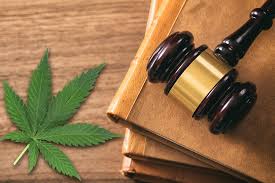 CBD is legal throughout Canada and the United Kingdom. However, in the United States, the laws governing CBD are grey at best. Within every state, CBD is legal according to the state’s law.
CBD is legal throughout Canada and the United Kingdom. However, in the United States, the laws governing CBD are grey at best. Within every state, CBD is legal according to the state’s law.
However, CBD is illegal at a federal level and considered a controlled substance even though CBD products contain less than 0.4 percent tetrahydrocannabinol (THC).
Also, most CBD products are obtained through cannabis plants that are regarded as hemp, which contains virtually no THC and is legal to grow throughout the country. Despite the federal law governing CBD, the cannabidiol is available in all the states in the U.S.
If you are considering trying CBD, then you might want to check out CBD capsules near me. Their ease of use and simplicity are undeniable.
How to Take CBD Capsules?
It is recommended that you take CBD capsules every day to reap the full health benefits of the supplement.
- Take with Food or Empty Stomach: You can take CBD capsules with food or on an empty stomach. Most users report no adverse side effects if they take the supplement on an empty stomach. Some researchers suggest that if you take the CBD capsules with a fat source such as a glass of milk, yogurt, or nuts, the cannabidiol is more readily absorbed by the body’s small intestine.
- Combining Cannabidiol Forms: You can combine CBD capsules with other forms of cannabidiol such as a spray or tincture for even better results. It will let you customize your dosage to meet your own unique physical needs.
Correct Dosage of CBD Capsules
There is no correct dosage of CBD. What works for one person might not work for another. At this point, it is trial and error. The amount you take depends on your own physical needs, the quality of the CBD product, and the dosage per capsule.
CBD capsules are available as follows:
- 10mg
- 25mg
- 50mg
- 100mg
- 250mg
Most people start out taking 25 to 40 milligrams of CBD per day. Other individuals start low at only 10 to 15 milligrams per day. Over time, the dosage can be increased if you are suffering from a particular health disorder that requires a higher dose.
Ideally, you should consult with your physician to determine your correct dosage to maintain your health and well-being. Finally, a general rule of thumb is to start low and increase as needed.
